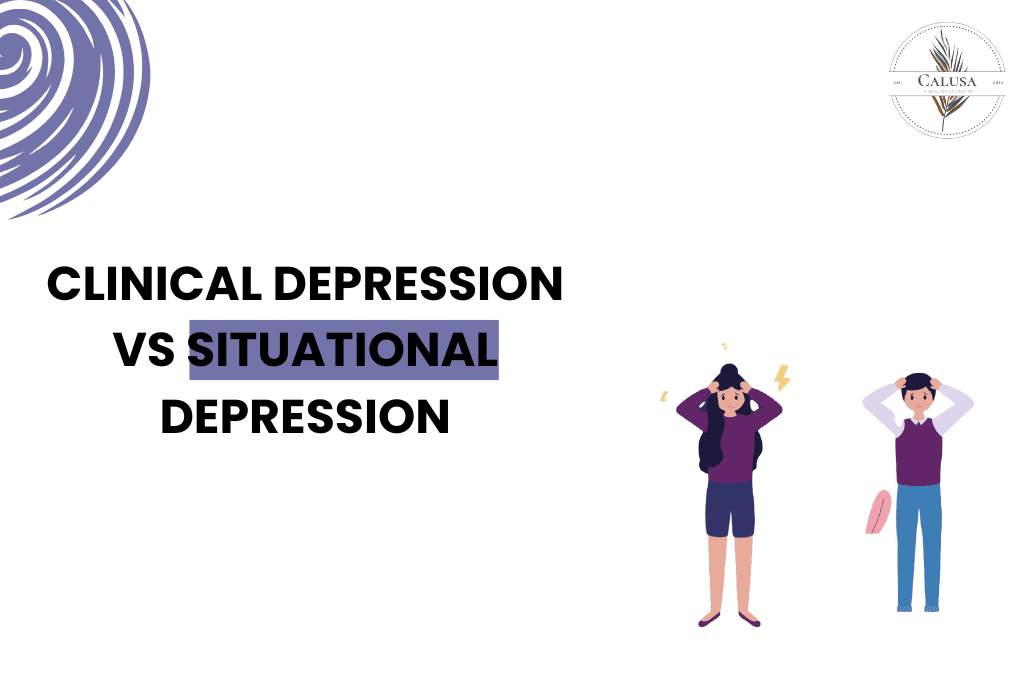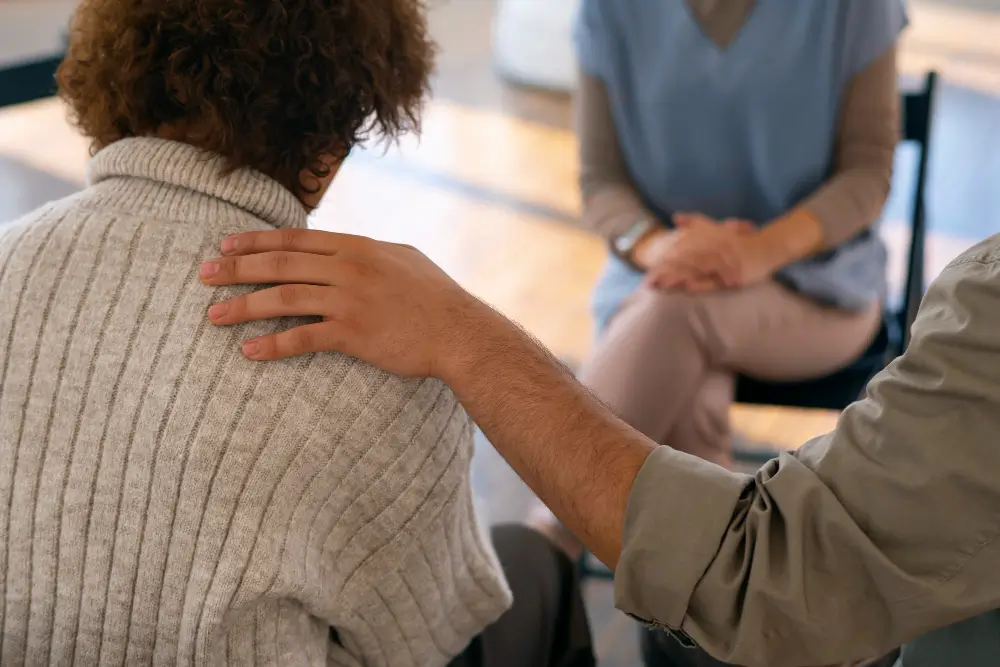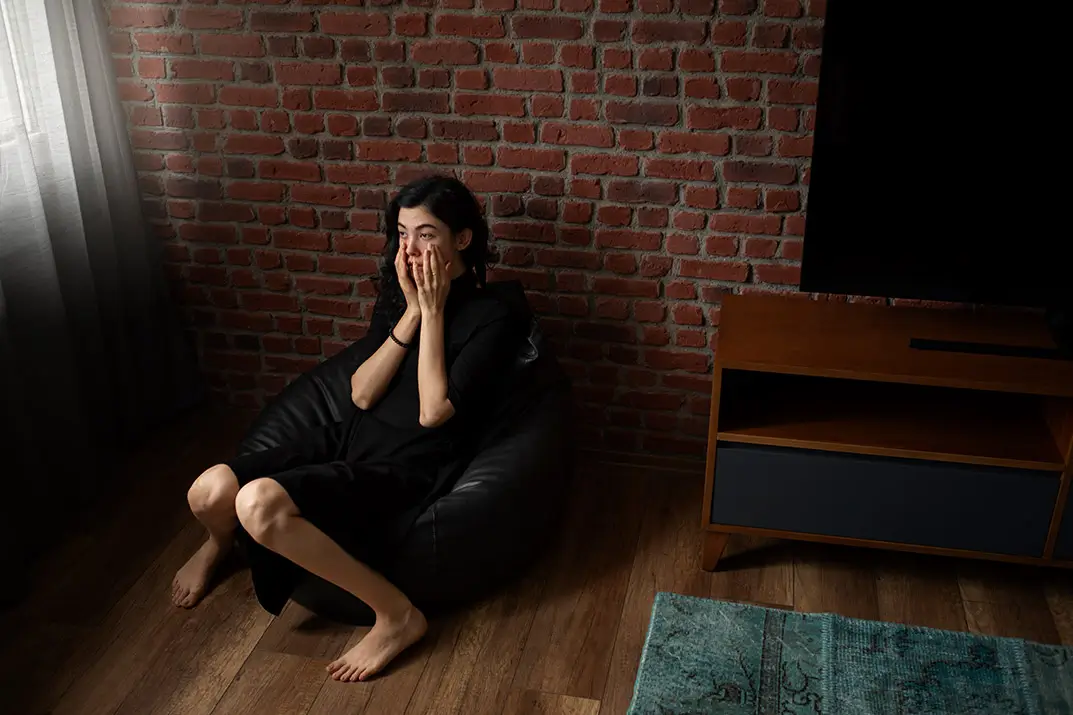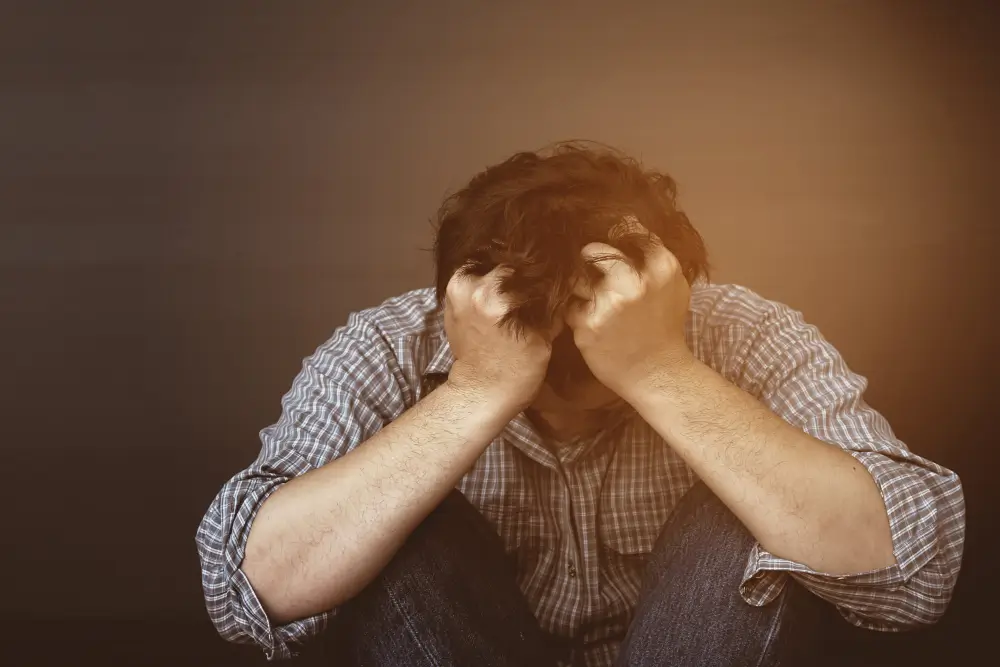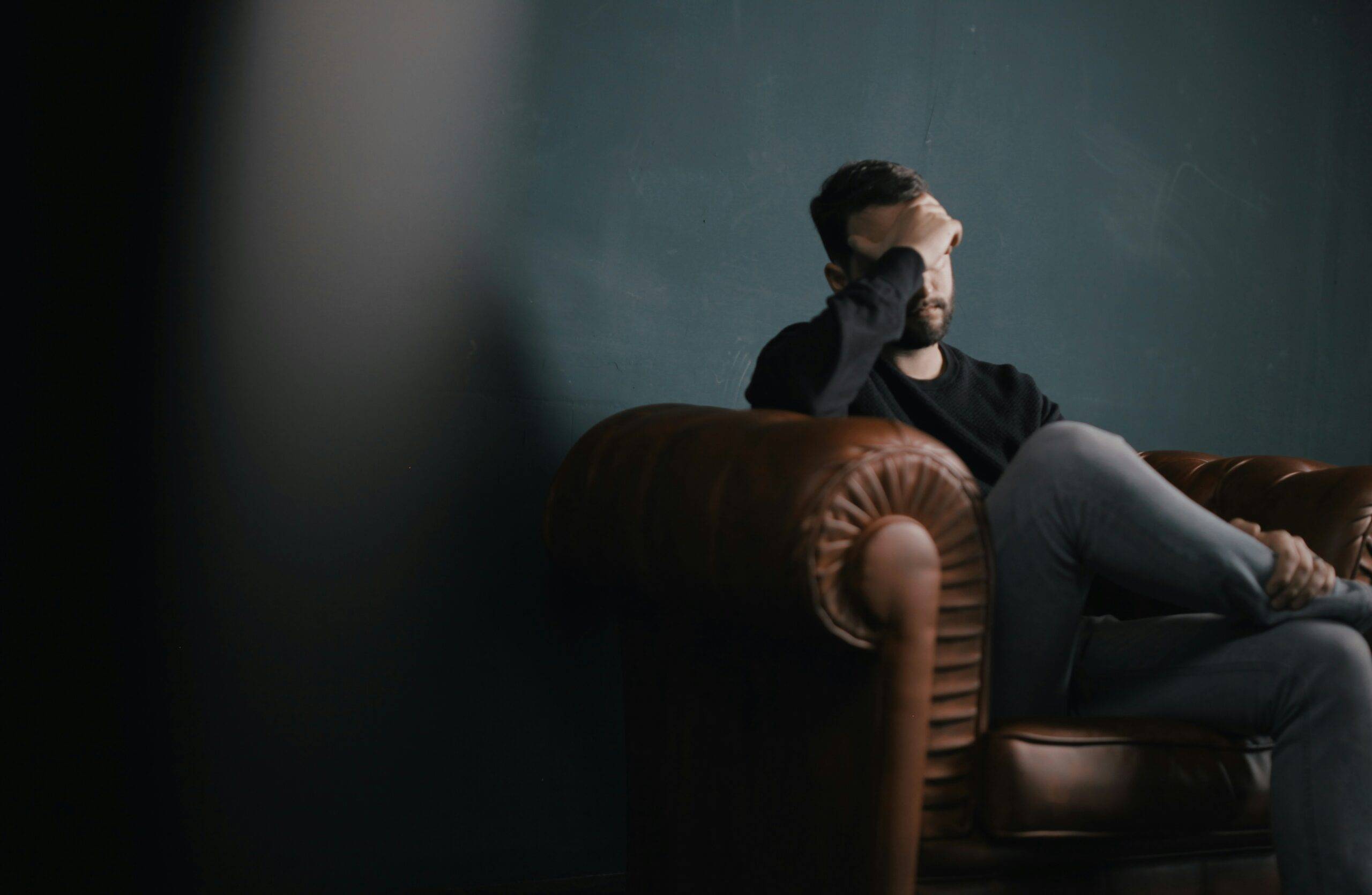The negative experience of the depression cannot be put into words. It’s a consistent feeling that sits heavy on the heart and bears its weight on everyday life, emotions, and relationships. But did you know there are different types of depression? This blog focuses on the differences between clinical depression vs situational depression. It will elucidate the causes, symptoms, and treatment options for the two forms of depression.
Is Depression Making Life Feel Impossible?
What Is Clinical Depression?
For individuals with major depressive disorder or clinical depression, life is a struggle. This condition is characterized by depressed mood and loss of interest in life. Different from situational depression, it is not a clinical condition that correlates with events that happen in one’s life. It’s more often caused by organic conditions, including chemical processes in the brain, hereditary factors, or health dysfunctions.
Symptoms of Clinical Depression
Clinical depression affects both the mind and body of the affected individuals. There are various symptoms of depression, some of which are:
- The unremitting feeling of sadness for 14 days or more
- Lethargy or low-energy
- Unenthusiastic with things that were previously appealing
- Memory problems or puzzlement when making decisions
- Symptoms affecting the body, like headaches or intestinal problems
Causes of Clinical Depression
Generally, depression is due to some factors that are not straightforward:
- Biological factors: those who have depression have imbalanced brain chemicals
- Family history: Genetic factors, if some member of the family has a relation has any mental illness
- High tension for long periods of trauma: Long-standing on high environment and exposure to trauma.
About 5% of adults worldwide suffer from clinical depression each year).
What Is Situational Depression?
The term “situational depression” occurs when a person suffers emotionally from a certain life circumstance, such as a job loss, divorce, or the death of a loved one. While it can feel overwhelming, it’s often temporary and improves with time or support.
Symptoms of Situational Depression
The signs and symptoms of the condition known as situational depression are not new because they also occur in people who have clinical depression. However, in this case, the reason why one might be feeling low is in relation to a specific time or place:
- Crying or a change in mood for a long time without cause
- Withdrawal from loved ones and close companions
- Excessive naps or complete loss of appetite
- Struggling with day-to-day activities.
Causes of Situational Depression
Situational depression has a very big trigger. This is because it is caused by substantial events that happen in life, such as:
- A person’s death
- Unforeseen financial loss
- Transitioning in key life events
Situational depression affects nearly 10% of individuals who experience major life changes.
Clinical Depression vs Situational Depression: Key Differences
Understanding the differences between clinical depression vs situational depression can guide individuals toward appropriate support and treatment. It is easy to assume that both of these conditions are the same in people and that seeking support is pointless, but there are distinctions that set them apart. In simple words, clinical depression is deeply rooted, whereas situational depression has a clear trigger.
Comparison Table
| Aspect | Clinical Depression | Situational Depression |
| Duration | Long-term, often chronic | Short-term, tied to an event |
| Causes | Biological, genetic, chronic stress | Specific life events |
| Symptoms | Persistent and severe | Event-specific and temporary |
| Treatment | Therapy, medication, lifestyle changes | Therapy, self-care, support groups |
When clinicians look at possible symptoms, they describe two forms of the disease:
- Internal mechanisms for clinical depression
- External life events leading to situational depression
- Both types of depression have their unique symptoms, both coupled with a lot of social stigma. However, recovery from either of such conditions requires time, patience, counseling, and a lot of support.
Getting the right help begins here, where a professional clinician makes the correct diagnosis.
Treatment Options for Depression
In terms of effectiveness, with clinical depression, situational depression may be easier to treat, but achieving success depends a lot on the severity of cases. For clinical depression vs situational depression, treatments often differ.
Clinical Depression Treatments
- Medication: Selective Serotonin Reuptake Inhibitors(SSRIs) for therapeutic treatments
- Therapy: Domestic skills in Islanders are always transferrable
- Lifestyle changes: Regular exercise and proper diet continue to be beneficial
CBT has a 60-80% success rate for treating depression.
Situational Depression Treatments
- Sustained Communication: Helps process emotions tied to the event
- Stress management techniques: Active recovery through meditation, breathing, and journaling
- Support systems: Friends and family and local support groups
Concerning a condition like depression that can be caused by a number of stressors, situational depression can last a few months, so it’ll often require help, but this help does not always need to be medical.
When to Seek Help
If you or someone you know is experiencing prolonged sadness, withdrawal, or difficulty functioning, reaching out for help is essential. However, if you or anybody related is showing symptoms such as low mood, irritability, unwillingness, or incapacity to perform daily chores, then this must be addressed. There is a difference, and professional treatment helps quite drastically in such cases. Whether it’s clinical depression vs situational depression, professional care can make a significant difference. Early treatment can reduce the severity of depression symptoms by up to 50%.
Your Journey to a Brighter Tomorrow
FAQs
Q: Is there a difference between situational depression and clinical depression?
A: Yes, situational depression is triggered by life events, like loss or stress, and usually resolves with time or therapy. Clinical depression (major depressive disorder) is a long-term condition caused by biological and environmental factors requiring treatment.
Q: Is there a difference between clinical depression vs depression?
A: Clinical depression is a medical term for major depressive disorder (MDD), a severe, persistent form of depression. “Depression” is a broader term that can include various types, such as situational, clinical, or seasonal depression.
Q: What is a situation-related depression?
A: Situation-related depression, or adjustment disorder, occurs after a specific stressful event, like a breakup or job loss. Symptoms include sadness, anxiety, and trouble functioning. It’s often temporary and manageable with therapy or support.
Q: What is the difference between clinical depression and seasonal depression?
A: Clinical depression is a persistent mental health condition with year-round symptoms. Seasonal depression, or seasonal affective disorder (SAD), occurs during specific seasons, usually winter, due to reduced sunlight. Clinical depression vs situational depression can be treated with therapy or medication.
Conclusion
When the patient understands that recovery is also an option, overcoming depression is much easier. Their clinical depression and experiencing stress over a situation could form a difference, and the latter still requires professional help. Let’s not waste any time and go straight to the treatment which is tailored specifically to the individual.
Struggling with depression? Let experienced professionals like Calusa Recovery guide you to a better tomorrow. Reach out for personalized support today.

